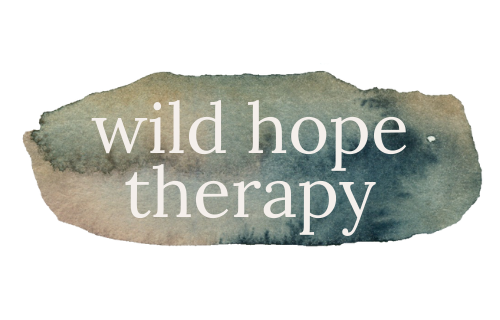april is Childhood Abuse Prevention/Awareness Month: how has childhood trauma impacted you?
by: samantha hoch, lpcc-s
Content Warning: Abuse
April is National Child Abuse Awareness/Prevention Month. It is a month to bring awareness to child abuse and neglect, help recognize the signs of abuse, and prevent child abuse from happening. This month can also be an acknowledgment to all of those who have been affected by childhood trauma, but are now adults. The impacts of childhood abuse are lasting and can influence many parts of our adult lives.
Building awareness
Building awareness is important as trauma can be subjective, the power dynamic often supports the narrative of the abuser, and knowledge gaps exist regarding abuse and unhealthy dynamics in all relationships, including the relationships between adults and children. The Adverse Childhood Experiences (ACEs) scale is a tool that assesses the degree of adverse and/or traumatic experiences a person has in childhood. The scale includes several adverse experiences that we commonly consider to be traumatic, such as physical, sexual, emotional abuse, and neglect. However, there are other experiences you may not have considered that can affect mental and physical health later in life, including divorced or separated parents, adults using cruel language around the household, or having a parent with a mental illness. Studies have shown that the higher ACE score one has, the more likely they are to experience not just mental illness and substance use disorders, but physical illnesses such as cancer, heart disease and COPD as well.
According to the CDC, 61% of surveyed adults have experienced at least one ACE. Additionally, 1 in 7 children experienced some type of abuse in the past year. It is essential that we increase the awareness of widespread child abuse and its longlasting impact. While the goal of Child Abuse Awareness Month is prevention, for anyone dealing with the impact of childhood trauma the good news is that our brains are designed to heal. Thanks to neuroplasticity that lasts our lifetime, it is never too late to address past trauma.
Healing through therapy
As these adverse experiences are found within relationships, they often go on to impact our relationships later in life; oftentimes, through our attachment styles.
If you often fear your loved ones may leave you and need constant reassurance that they will not, you could have an ambivalent/anxious attachment style.
If people ever tell you that you have commitment issues, discomfort with intimacy, or “put up walls” with others, you could have an avoidant attachment style.
If you crave intimacy with others, but push them away when they get close to you, you could have a disorganized attachment style.
A therapist trained in attachment theory can help you explore your relationship patterns,identify your attachment style and explore the influence on your life. While most people do not fit cleanly into a single category, being able to identify and label your unique patterns can help you to address unmet needs and develop the skills you need personally to have healthier relationships.
A trained trauma therapist can also provide guidance in this process. Several therapeutic approaches are effective in treating concerns related to childhood trauma. To better manage and cope with feelings of depression, anxiety, or low self-esteem related to childhood trauma a therapist may utilize Cognitive Behavioral Therapy (CBT), Dialectical Behavioral Therapy (DBT), or Cognitive Processing Therapy (CPT). These therapies are focused on a “top-down” approach that helps you learn skills to manage emotions, work on negative automatic thoughts, and be more present in your day-to-day life. For getting to the root of the pain caused by childhood abuse and to heal your origin wounds, a “bottom-up” approach can be helpful. EMDR therapy, Somatic Experiencing, yoga therapy, and art therapy are examples that help build distress tolerance with difficult memories and ease the distress they cause in daily life. Utilizing a trauma-informed approach, Wild Hope therapists will help guide you through this experience and provide the treatment that best fits your concerns and unique path forward.
It is never too late to start working on your childhood trauma. Your experiences are valid; listen to your intuition and seek support to identify what parts of you need to heal. During Childhood Abuse Awareness Month, we want to amplify that childhood trauma can show up in so many different ways in your life, that the impact can be lasting, and most importantly, support is available.
